Homeschool flexibility offers the opportunity to introduce real world skills and opportunities. Kids crave the experiences that happens when the whole world becomes a learning playground. Beach play includes experiences with Marine Biology, shell identification, wave and tides study, currents, or rip tides, just to name a few. Gardening involves Biology, Home Economics, and Agriculture. Traveling can incorporate Geography, map skills, History, and various other subjects. You know you are a homeschooler, when the park ranger’s station becomes your first stop for guidebooks and to see what activities and classes they offer kids about the area!
Bottom line: School is everywhere!
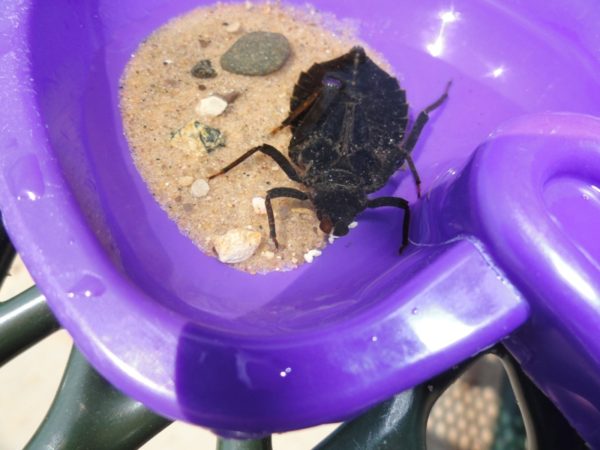
to find out more about this insect we played with at the lake.
It is a Dragonhunter Nymph, and will eventually turn into a large dragonfly.
Homeschool Flexibility
Personally, I like the spontaneity that the real-world provides. Andrew and I were in NW Michigan when we saw a group of people milling around a small bridge. We investigated the action, and found the stream full of salmon returning home to spawn.
The DNR was on-sight and testing some of the catches for mercury levels. They saw Andrew’s interest and happily answered my youngster’s questions. We learned about mercury poisoning and the different species most affected. Thankfully the tests came back with low mercury levels, because had they not, I was going to have to rethink some of my meals!
Afterwards, a local fisherman took Andrew aside and fished with him. Their catches were a long as Andrew was tall, and much heavier! Days later, these experiences lead to discussing pollution and ecosystems. Kids are never too young for these topics, as long as you break them down to their level of understanding.
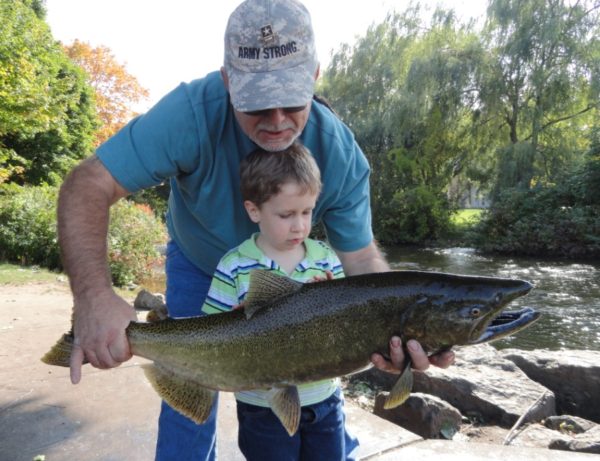
Freedom and Flexibility of Playtime
Unlimited discovery time ranks high on my priority list. I want my kids outside exploring the world, creating forts with sticks, or making shapes out of clouds. We watch bees pollinate plants, and Katie-Did’s eating insects, but our favorite is setting up ant buffets just so we can watch where they take the food. Homeschool flexibility means that we can explore and discovered nature without a bell telling us to move to the next subject.
Sometimes during the winter months, Andrew will be in the middle of school work and I will surprise him with a whisper asking, “Wanna go skiing?” Prader-Willi syndrome can cause obesity, so on those perfect ski days, I’d rather be burning calories than pushing a pencil. (I like the break too!) I love it when Andrew tries this same ploy with me. He will do his best to convince me that I want to ski in 37 degree rain.
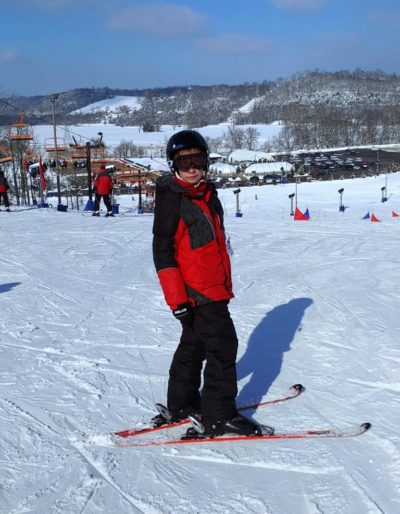
Real-World Skills
A friend of mine has an 11-year old child who likes to cook. He keeps a notebook of the meals he prepares, as well as the nutritional values. Besides cooking, he takes responsibility for his own meal shopping. He reads and compares labels, looks at ingredients, and figures price comparisons. Working with others outside his peer group was uncomfortable at first, but now this young man handles interactions with ease. Children who have ‘real-world’ experiences, learn to interact and make eye contact with people of all ages. They gain confidence and skills by having to speak with cashiers, store employees, or waiters and waitresses. The freedom and flexibility of homeschooling allows a topic of interest to be expanded and taken into many realms.
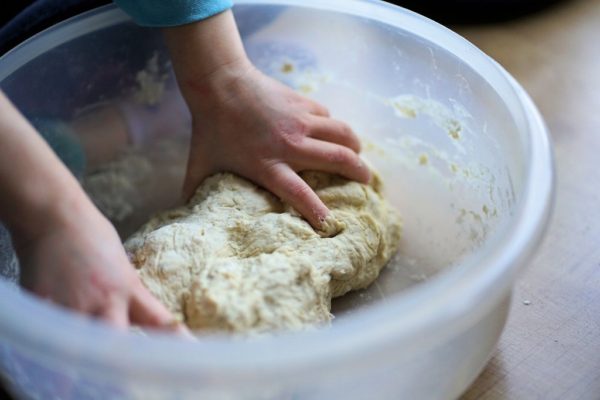
Care and Compassion
Andrew is quick to notice when someone needs help. He likes to assist people in wheelchairs who can’t reach grocery items, or he will search for all the empty boxes at Aldi and add them to the ‘empty box bin‘. It gives him the independent feeling that he is working and helping the employees.
Grandparents
Andrew has watched my mom age into her mid 90’s and is capable of feeding Grandma lunch at her nursing home. He has learned the sense to know when to give her time to chew, and when he should offer her a drink. Andrew knows immediately when Grandma or any of the other residents are cold, and will make sure they get warming blankets. He has trained the nurses to understand that he is not leaving their sides until he gets these items! These scenarios are not part of our homeschooling subject list, but rather real-life experiences that teaches care and compassion, neither of which can be learned from a text book.
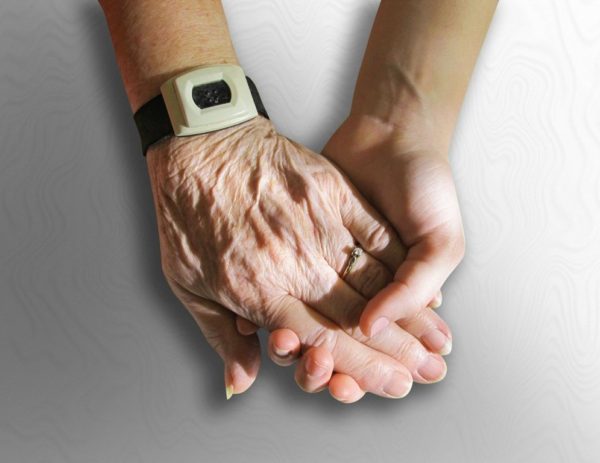
The Gift of Time
Just before my Dad’s death, homeschool flexibility allowed me to be home (in another state) to assist my mom, care for Dad, and tie up estate ends. I am thankful homeschool travels, because I am sure our absences at classical school would have raised red, truancy flags. Instead, my children helped in the day to day action of caring for aging grandparents. To this day, I am grateful for the gift of time that I could give my parents, and for the opportunity to spend that extra time with my Dad.
I Control all Factors
I am in control of all internal and external factors. This means I work school around medical and therapy appointments. Prader-Willi syndrome presents its own set of difficulties. I am grateful to be able to control access to food, as well as keep a set schedule of planned meals, and snacks.
Andrew’s stress and anxiety levels (mine too) can be triggered by deadlines. There is enough appointments to teach punctuality so I am grateful that homeschooling eliminated the need to meet a school bus. There is no morning hubbub trying to get out the door on time. However, to eliminate morning stress, we keep a rise and shine routine. I am adamant about not schooling in pajamas. I feel we do better when we are cleaned up, and ready for whatever the day might bring.
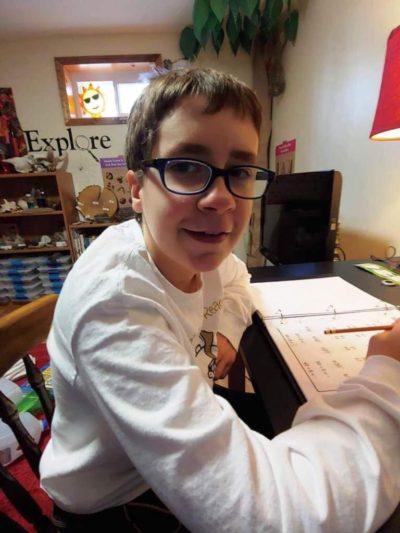
The REAL Freedom of Homeschooling
Homeschool flexibility offers real world skills and other freedoms as well. Instead of having to leave our beliefs curbside before entering school, we start with the Pledge of Allegiance, morning prayers, and Bible study. God is very much part of our daily education. We have traveled to countries where such freedoms are non-existent. Andrew is well aware of the blessings provided by the freedom and flexibility of homeschooling. We have the luxury of focusing on what is most important to our family.
As a free gift to our subscribers, Andrew compiled 45 of our favorite living book titles for grades K+. Subscribe to our monthly newsletter to receive free: picture books, early reader, and chapter books.
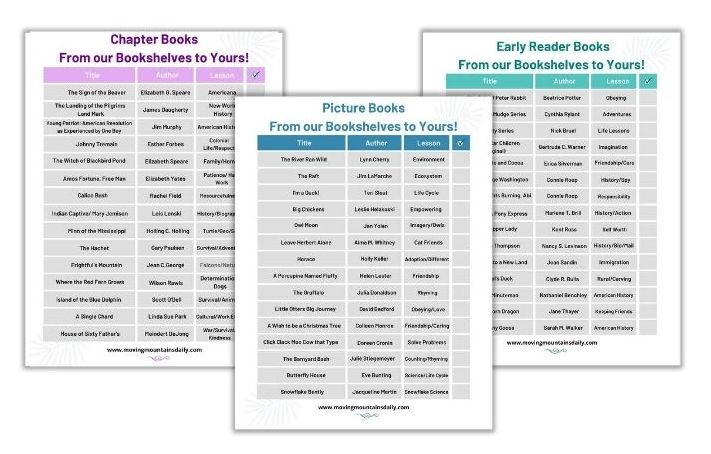
Living Books
Not sure what a living book is? Read more about living books in our post: Powerful Lessons of Living Books.


